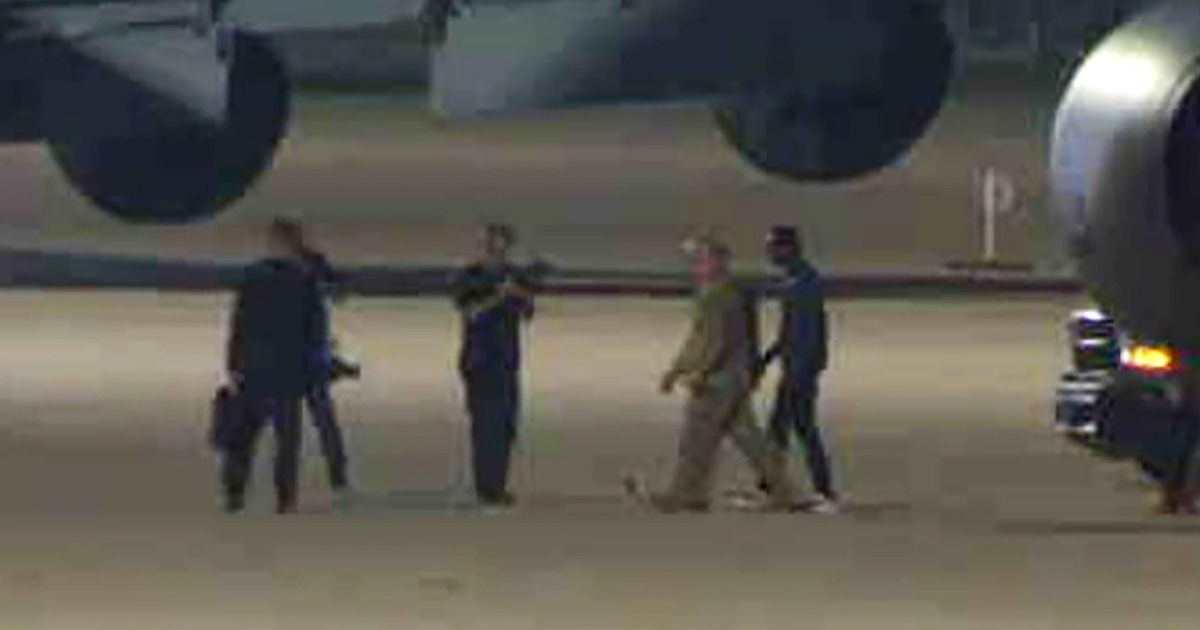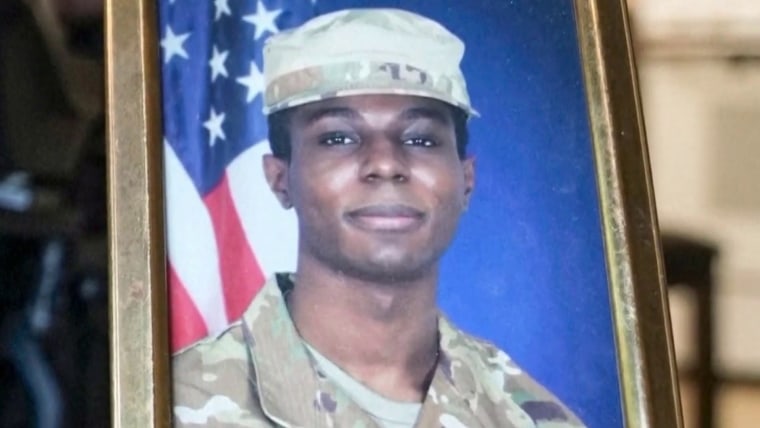American soldier Travis King has arrived back on U.S. soil after being expelled by North Korea, months after he ran across the border from South Korea into the reclusive state and sparked an international incident.
The U.S. Army private landed in San Antonio, Texas, in the early hours of Thursday, a defense official said.
King was expected to be taken to the Brooke Army Medical Center in San Antonio, according to two defense officials.
During his time there, he is expected to undergo post-isolation support activities, known as PISA, which are designed to help prisoners of war, hostages and wrongfully detained Americans reacclimatize to being in the U.S. and respond to any trauma or post-traumatic stress.
In a briefing call Wednesday, senior administration officials said King appeared to be in good health and good spirits — and was “very happy” to be on his way home and closer to reuniting with family.
What lies ahead for King following the acclimatization process was not immediately clear.
A spokesperson for the U.S. Army said Wednesday that King’s status would be addressed “at a later time.”
“The Army’s focus right now is on ensuring the soldier’s well-being and privacy,” U.S. Army spokesperson Bryce Dubee said.
King, 23, raced across the border into North Korea from South Korea on July 18 during a public tour of the demilitarized zone.
A statement reported by the state-run news agency KCNA on Wednesday said the U.S. soldier had “illegally intruded” into North Korean territory because he was disillusioned about inhumane treatment and racial discrimination” in the Army and about the “inequality existing within the American Society.”
The U.S. has yet to officially respond to those claims. North Korea was silent on King’s status for weeks before confirming his detention in August.
Prior to crossing the border, King had been released from a South Korean prison and was being escorted by the military to Incheon International Airport near Seoul. He faced the possibility of further disciplinary action in the U.S.
The precise details of King’s expulsion from North Korea are still unclear.
The soldier was transferred out of North Korea via the Chinese border, where U.S. officials received him, senior administration officials said in the briefing call Wednesday. Sweden went into North Korea to help facilitate the transfer, they said, noting the “operational complexity” involved in King’s return.
The officials said the U.S. was “grateful” to both Sweden and China for their roles, but noted that China played a “constructive role” in the transfer and did not play a mediating part. The U.S. worked primarily with Sweden as the “protecting power,” they said.
They said no concessions were made to North Korea in the transfer, “full stop.”
Jonathan Franks, a spokesperson for King’s mother, Claudine Gates, told NBC News’ Andrea Mitchell of her relief at hearing from her son prior to his return to the U.S.
Franks said Gates did not know why her son was let go, but that he appeared to be “in good spirits.”
“This was a call just to say: ‘Hey, how are you? I love you; I care about you.’ It’s probably not a time to ask for a whole bunch of details or ask a lot of questions,” he said.
King’s detention in North Korea came at a time of heightened tensions between the isolated communist state and its southern neighbor, as well as with the U.S.
Pyongyang fueled fresh concern after escalating its nuclear threats and undertaking weapons tests, while a summit between North Korean leader Kim Jong Un and Russian President Vladimir Putin sparked fears that the East Asian country could help Moscow’s war in Ukraine.
In the briefing call Wednesday, senior administration officials said the U.S. remained “very open to the possibility of diplomacy” with North Korea.
They said this incident demonstrated that “keeping lines of communication open, even when ties are strained, is a really important thing to do and can deliver results.”
“We again stand by ready for any further diplomacy that might be possible. But for today, we are just focused on private King’s safe return to the United States.”
A two-day session of North Korea’s Supreme People’s Assembly amended the constitution to include Kim’s policy of expanding the country’s nuclear weapons program, KCNA said Thursday.
Kim addressed the country’s rubber-stamp parliament and called for an exponential increase in the production of nuclear weapons and for his country to play a larger role in a coalition of nations confronting the U.S. in a “new Cold War,” KCNA said.






